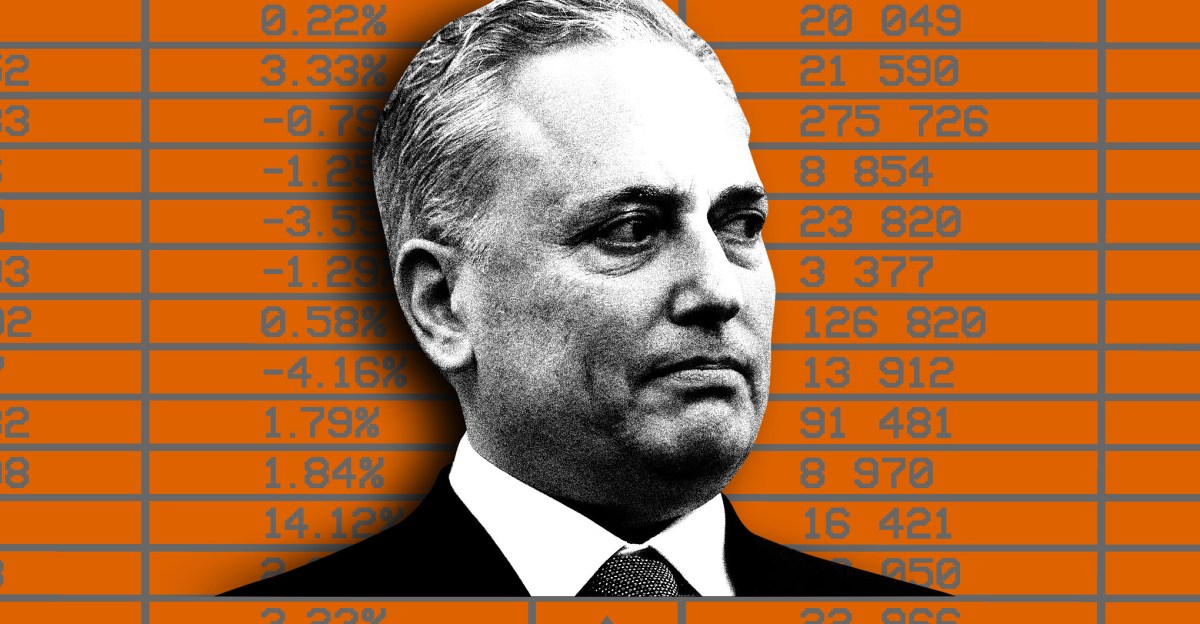When people sign up for a dating site like Tinder, they don’t expect their profiles and personal information to be searchable — especially by a scorned lover, or worse. But that’s what popular apps like Cheaterbuster or CheatEye seem to be doing under the guise of being able to “catch cheaters.”
Last week, 404 Media published a report about apps that apparently use facial recognition technology to trace dating profiles of private citizens as evidence that these partners are unfaithful. Many of these services charge a one-time fee to locate a Tinder profile with just a name or a photo of the person’s face. (Some searches can run you $18 a transaction.) 404 Media tested their technology by running searches with consenting subjects and accurately located their dating profiles.
Without any context about why someone’s Tinder profile may exist, these transactions lack nuance and normalize a dangerous practice, as almost every data and privacy scholar we spoke to warned against using them — some even making the case for them to be banned.
“The most insidious aspect is how these tools make peer-to-peer surveillance seem normal and acceptable,” says cyber and privacy expert Heather Kuhn, an adjunct professor of the College of Law at Georgia State University who’s also a senior privacy counsel at a software company. “Marketing them through viral TikTok videos trivializes the act of biometric surveillance and conditions people to accept it as a solution to relationship problems.”
When Tinder users upload their images and all their identifying info — like where they live, went to school, even the last live location they opened the app — they’re not agreeing for it to be used in any other context outside of Tinder.
“They are agreeing to the platform’s terms, not consenting to have their data scraped, indexed in a third-party database, and made searchable via their biometric data,” says Kuhn.
Mark Weinstein, a tech advisor who’s written several books advocating for safer practices online, says these third-party apps are “frankly chilling.”
“What’s marketed as ‘cheater busting’ is really just vigilante surveillance,” Weinstein tells The Verge. And while apps like Cheaterbuster most likely do use facial recognition tools to locate dating profiles, they can also use a litany of public data to cross-reference names, age, and locations “to build shadow databases of dating profiles that Tinder never meant to be public,” Weinstein explains. “It’s mass data mining, connecting the dots on people without their consent.”
Some experts are shocked that Tinder hasn’t sought retribution against them yet. “It seems like it violates the app’s terms of service, so from that perspective, should it exist?” poses Marshini Chetty, a University of Chicago professor who teaches courses on usable privacy and security. “You’re doing something the company is not condoning — I guess I’m wondering why it hasn’t been shut down.”
Tinder did not immediately respond to our request for comment. Apps like Cheaterbuster and CheatEye also have not responded to requests for comment.
“This technology is typically between 90% and 99% accurate, with top algorithms hitting 99% on high-quality images but dropping closer to 90% in real-world or lower-quality conditions,” says Weinstein, citing Bipartisan Policy Center’s statistics. “That’s a big spread allowing for a lot of mistakes.” (Facial recognition technology also disproportionately misidentifies people of color, experts warn.)
A blurry selfie can easily produce a false positive result, which will open people up to a slew of messy and even violent encounters between romantic partners. Irrespective of worst-case scenarios with stalkers and abusers, apps like these prey on the very worst of our human tendencies.
“It thrives on suspicion and doubt. For a relatively low monthly fee, it offers an answer — or the illusion of one — to a deeply emotional question,” says Kuhn. “Even if it only works some of the time, the viral marketing and the emotional reward for a hit are enough to sustain the business.”
“Catch a cheater” apps may also violate already established data privacy policies, specifically Europe’s GDPR, or General Data Protection Regulation policy which was instated in 2018 to protect user data across the EU. “In Europe, apps like this certainly violate GDPR, which gives people clear rights over how their personal data and images are collected, stored, and used,” says Weinstein.
In the US, however, privacy laws are slow to introduce and pass. And while there is no federal protection for how your personal data is collected or used, there are new regional bills that do give consumers some rights to their data and likenesses online. One expert flagged California’s CCPA landmark ruling, or the California Consumer Privacy Act, which gives people rights to know about how their data is being used or to be able to delete their data.
“What can be done? Legislative action is truly the only solution that fixes this mess,” says Weinstein. “The good news is that there are promising bipartisan efforts well underway, including COPPA 2.0, which would extend online privacy protections to everyone under 18, and the American Privacy Rights Act (APRA), which would give all Americans control over how their data is collected, shared, and sold. These bills must immediately be elevated to the forefront of Congress’s legislative agenda and passed, then signed by President Trump.”
While Trump did sign the Take It Down Act earlier this year, which requires sites to remove nonconsensual deepfakes and other lewd images within 48 hours of a request, there are no indications that he will sign or further prioritize these issues. And given the government shutdown, which seems to only be dragging on, we can’t hold our breaths for these efforts to pass anytime soon.
Whether these apps are effective in proving adultery or locating the dating profiles of people who are in committed relationships, they will cause a cascade of new and worsening problems for romantic partners — all while normalizing surveillance and otherwise unhealthy and dangerous cyber practices. In an era of blindly following tech trends and innovations, giving up our anonymity for opportunity, our right to privacy is slipping away from us every day.
“Everyone should have some basic expectation of privacy,” Chetty states, especially when you’re submitting your photos and information for dating purposes only.
“I recommend people try to resolve their relationships without resorting to these apps,” she adds. “Maybe they should question if they should be in the relationship if they’re using this service in the first place.”


